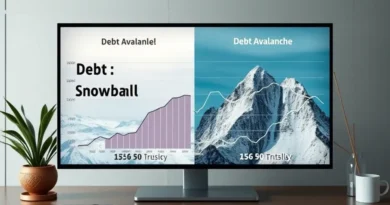Debt Management Plans: Are They Right for You?
In the realm of personal finance, managing debt can often feel like navigating through a dense fog. For many, it’s a source of stress that impacts not only their financial stability but also their mental well-being. Debt management plans (DMPs) have emerged as popular tools to help individuals regain control, but they aren’t one-size-fits-all solutions. In this post, we will explore what a DMP entails, the benefits and limitations, and how to determine if it’s the right option for your financial situation.
What is a Debt Management Plan?
A Debt Management Plan is a structured repayment plan that helps consumers pay off their debts over time, typically facilitated by a credit counseling agency. Through a DMP, an individual makes regular monthly payments to the agency, which then distributes these payments to the creditors. This arrangement can simplify payments and sometimes even reduce interest rates or fees.
Benefits of a Debt Management Plan
One of the primary attractions of a DMP is the peace of mind it can provide. Here are several benefits to consider:
- Lower Interest Rates: Many credit counseling agencies can negotiate lower interest rates with creditors as part of a DMP, which reduces the overall cost of your debt.
- Single Monthly Payment: Instead of juggling multiple payments, a DMP consolidates them into a single monthly payment, making budgeting easier.
- Improved Credit Score: While enrolling in a DMP may impact your credit score initially, it can result in improved scores over time as debts are paid down.
- Professional Guidance: Credit counselors can provide personalized advice and help you understand your financial situation better.
Limitations of a Debt Management Plan
However, it’s essential to weigh the benefits against potential drawbacks:
- Fees: Some credit counseling agencies charge fees for their services, which can add to the overall cost of managing your debt.
- Impact on Credit Scores: Enrolling in a DMP may show up on your credit report, which can initially affect your score.
- Time Commitment: DMPs typically require a commitment of three to five years, which might not appeal to everyone.
- Restrictions on Credit Use: While enrolled in a DMP, you might be prohibited from acquiring new lines of credit, which some may view as a limitation.
Is a Debt Management Plan Right for You?
Determining whether a DMP is suitable for your financial situation involves introspection and sometimes professional guidance. Here are several questions to consider:
- What is Your Debt Situation? Consider the amount and types of debt you have. For unsecured debt like credit cards, a DMP can be a good option, while secured debts like mortgages may require different approaches.
- Are You Overwhelmed by Payments? If you find it challenging to manage multiple payments or are struggling to stay afloat financially, a DMP could provide relief.
- What is Your Credit Health? If your credit score is already low and you are focused on long-term recovery, the short-term impact of a DMP might seem worth it.
- Can You Commit to a DMP? Assess whether you can commit to the program for several years. Is your financial situation likely to improve over that time?
Conclusion
Debt Management Plans can be an effective option for those struggling with significant debt and seeking a structured way to pay it off. However, it’s important to approach this decision with a clear understanding of what a DMP entails, along with its associated pros and cons. Consulting with a financial professional can also provide you more tailored insights into your financial health and guide you towards the solution that best meets your needs.




